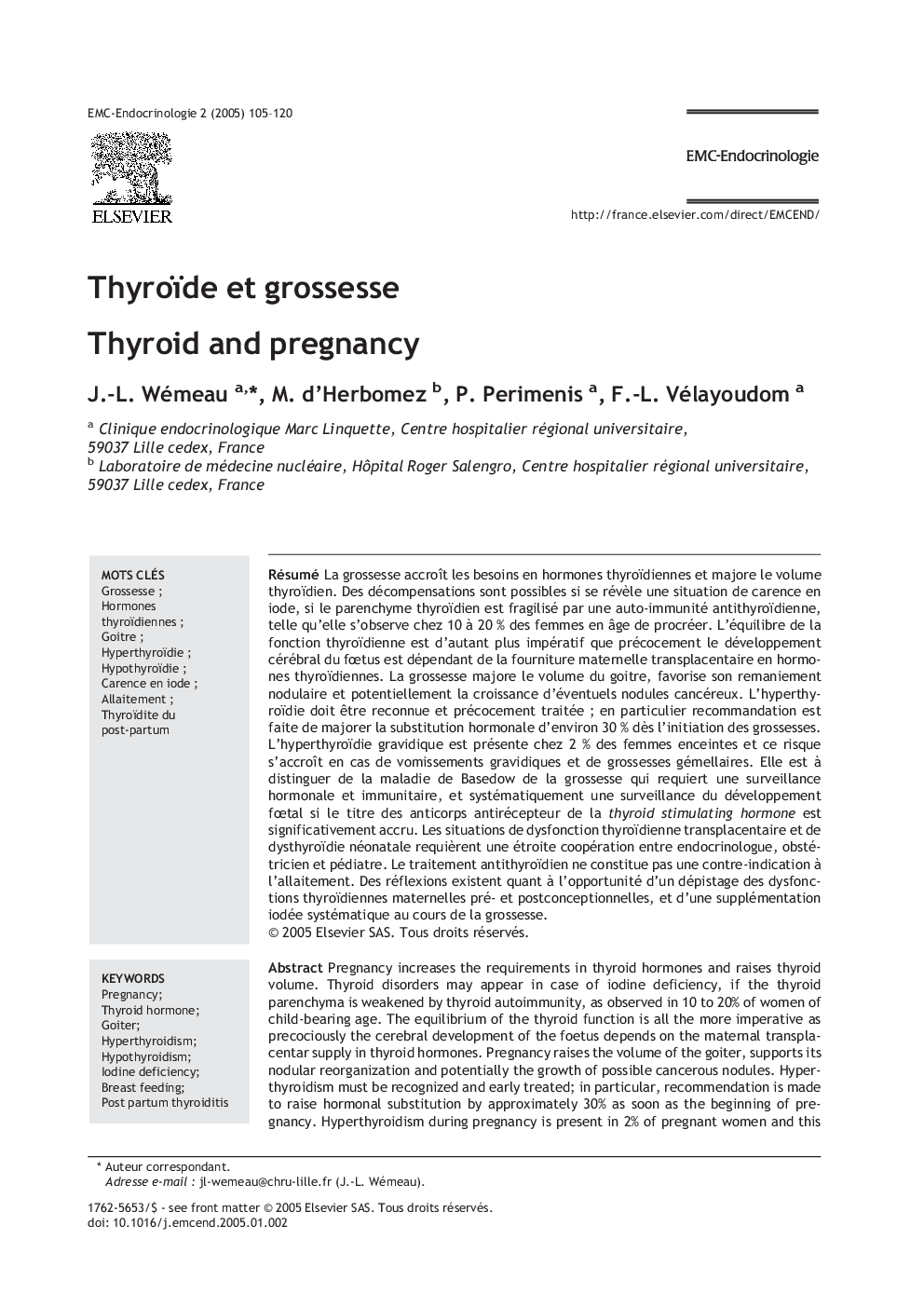| Article ID | Journal | Published Year | Pages | File Type |
|---|---|---|---|---|
| 9239101 | EMC - Endocrinologie | 2005 | 16 Pages |
Abstract
Pregnancy increases the requirements in thyroid hormones and raises thyroid volume. Thyroid disorders may appear in case of iodine deficiency, if the thyroid parenchyma is weakened by thyroid autoimmunity, as observed in 10 to 20% of women of child-bearing age. The equilibrium of the thyroid function is all the more imperative as precociously the cerebral development of the foetus depends on the maternal transplacentar supply in thyroid hormones. Pregnancy raises the volume of the goiter, supports its nodular reorganization and potentially the growth of possible cancerous nodules. Hyperthyroidism must be recognized and early treated; in particular, recommendation is made to raise hormonal substitution by approximately 30% as soon as the beginning of pregnancy. Hyperthyroidism during pregnancy is present in 2% of pregnant women and this risk increases in case of hyperemesis gravidarum and twin pregnancies. It should be distinguished from pregnancy Graves' disease which requires hormonal and immunizing monitoring, and systematic monitoring of the foetal development in case of significantly increased TSH antireceptor antibodies. Transplacentar thyroid dysfunction and neonatal dysthyroidism require close cooperation between endocrinologist, obstetrician and paediatrician. Treatment using antithyroid drugs is possible with breast feeding. Appropriateness of tracking pre and postconception maternal thyroid disorders and systematic iodine supplementation during pregnancy are discussed.
Keywords
Related Topics
Health Sciences
Medicine and Dentistry
Endocrinology, Diabetes and Metabolism
Authors
J.-L. Wémeau, M. d'Herbomez, P. Perimenis, F.-L. Vélayoudom,
